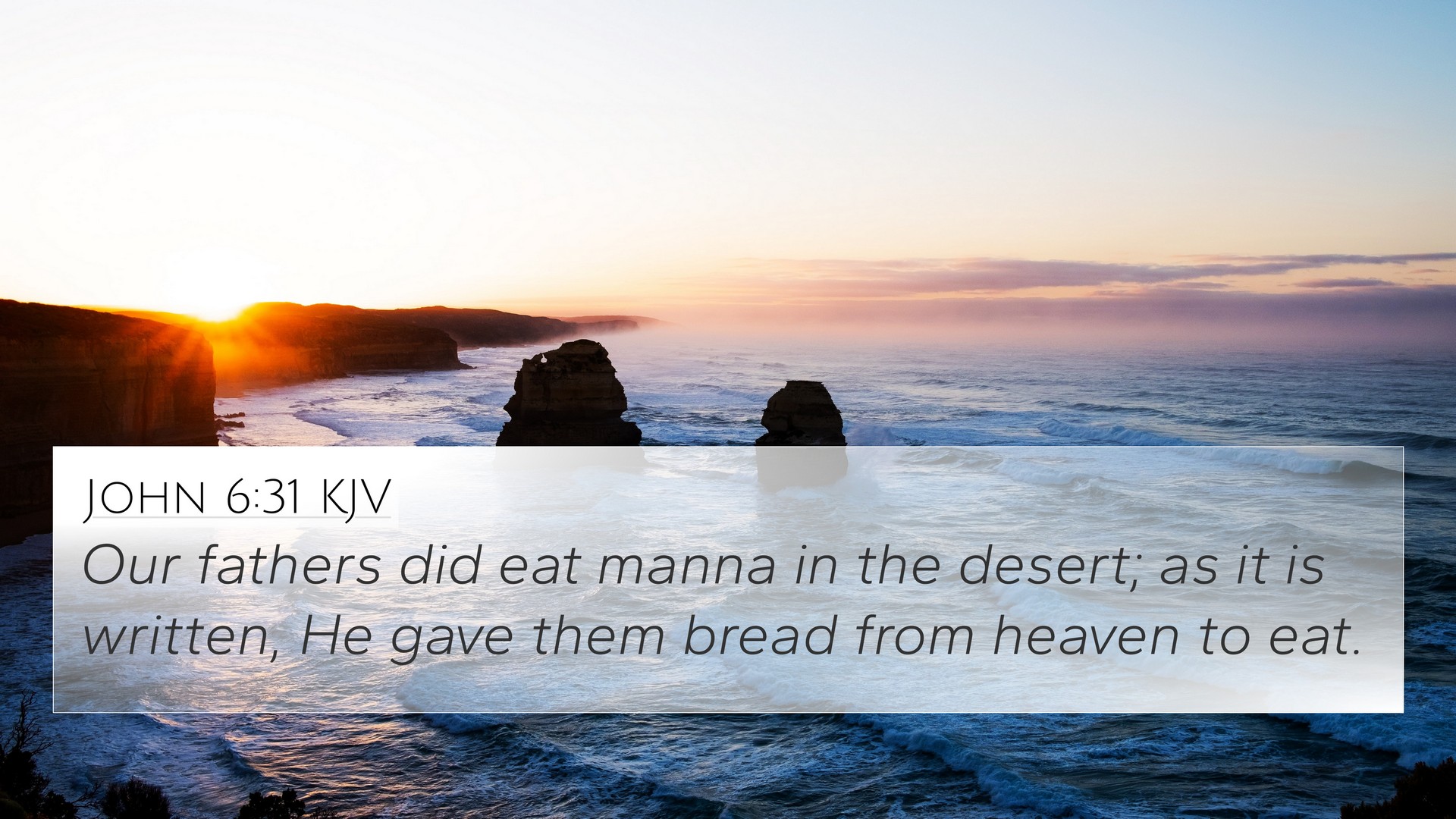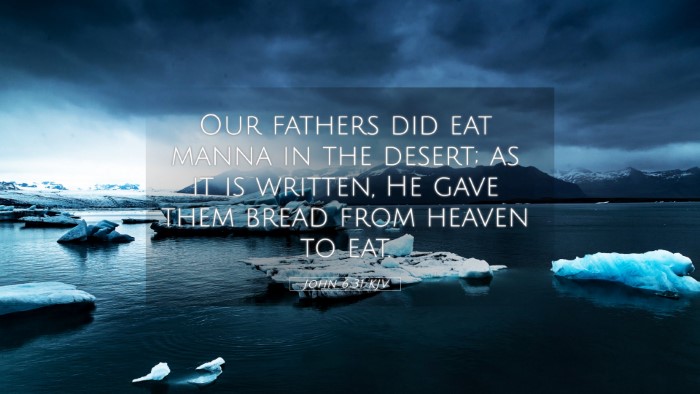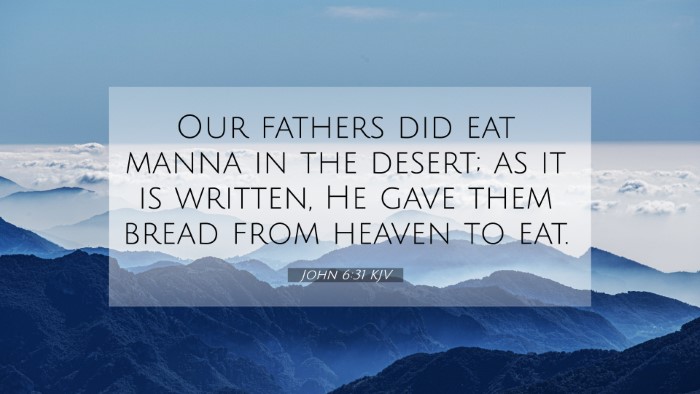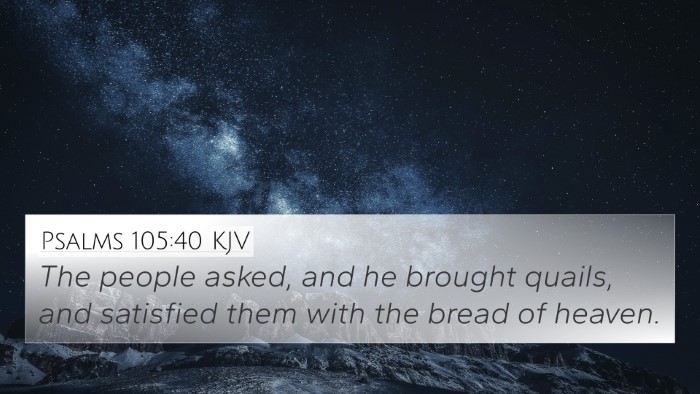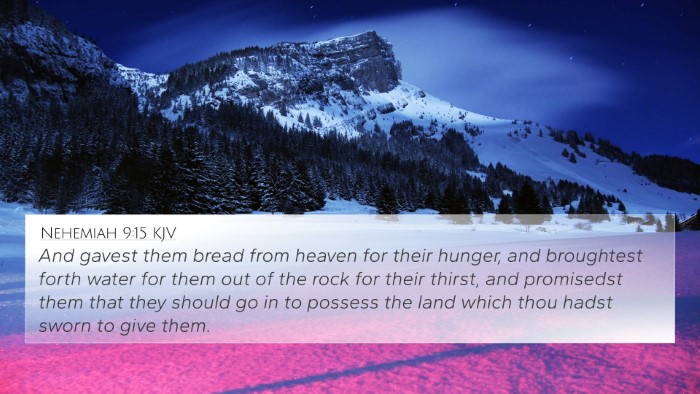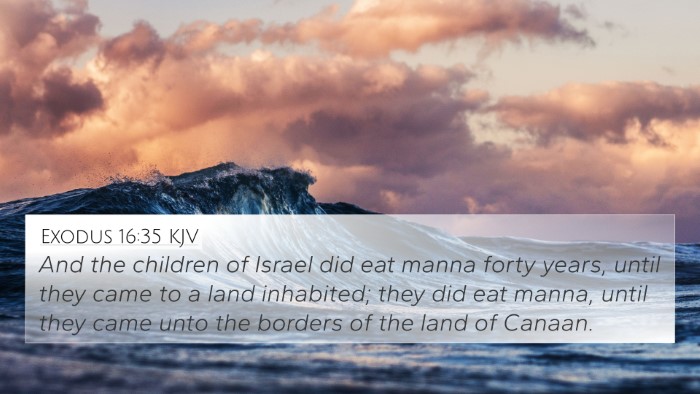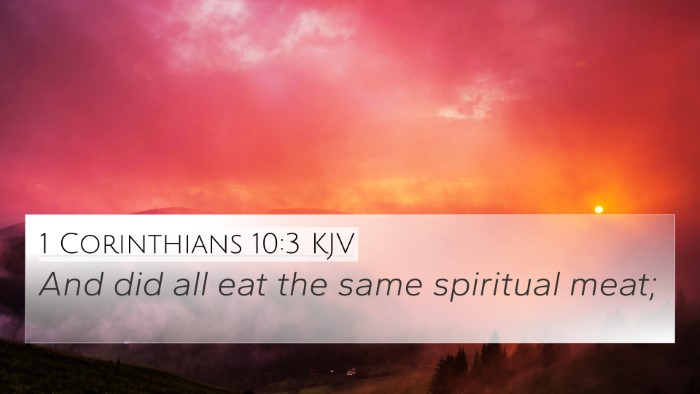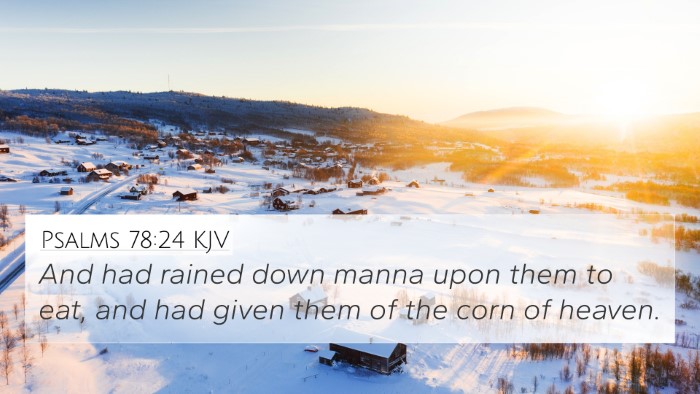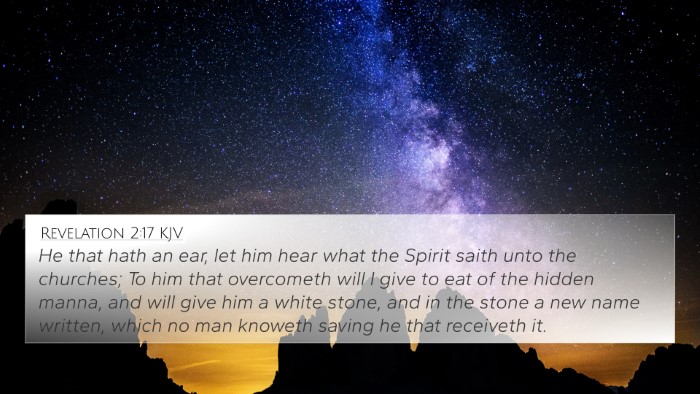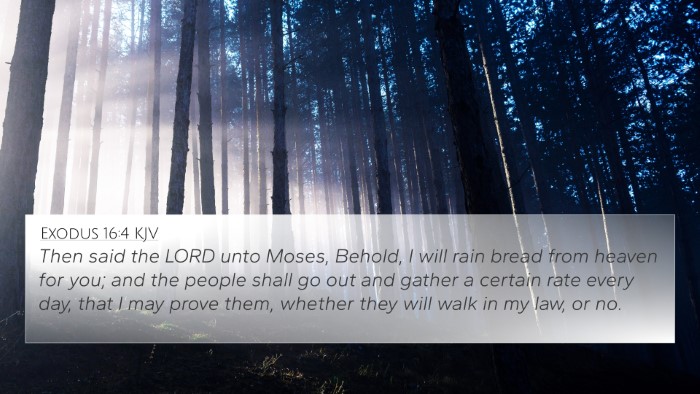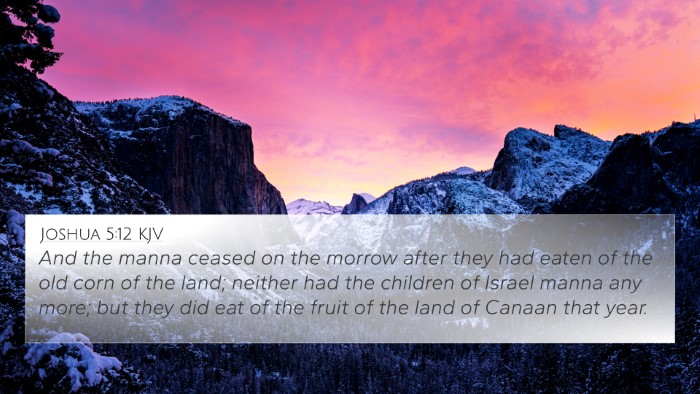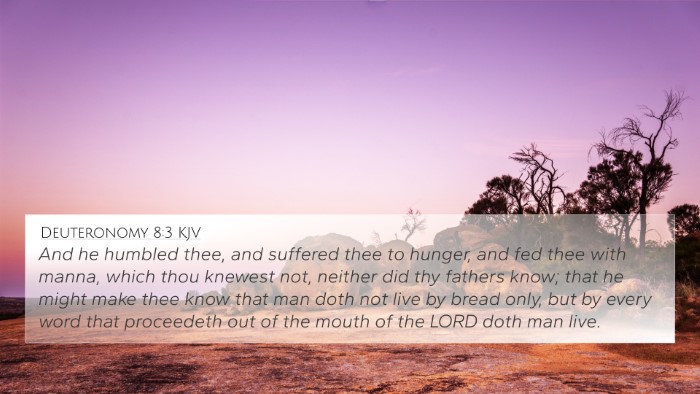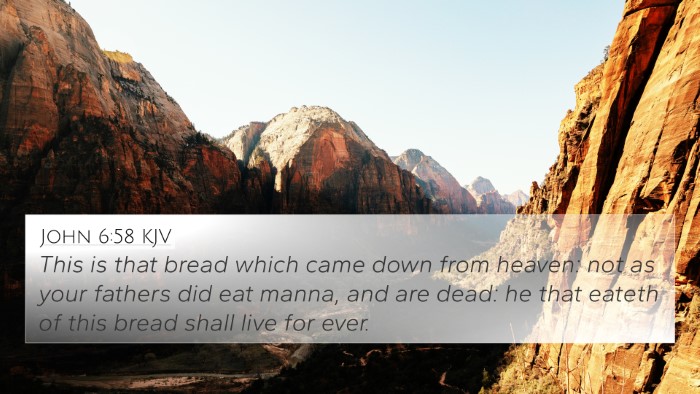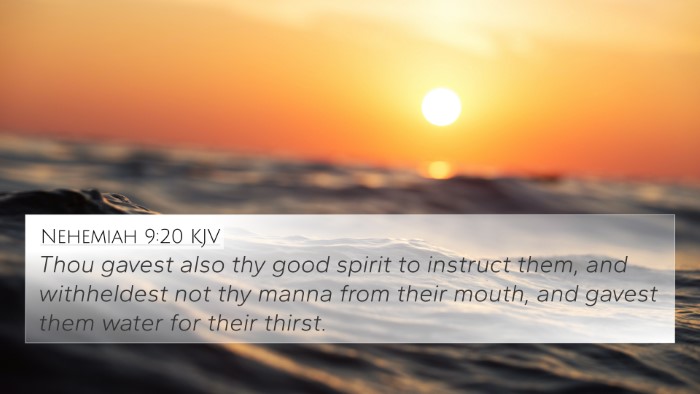Understanding John 6:31
Bible Verse: John 6:31 - "Our fathers ate the manna in the desert; as it is written, 'He gave them bread from heaven to eat.'
Overview
In John 6:31, the Jewish audience references their ancestors' experience in the desert, where God provided manna as sustenance. This verse opens a dialogue about the nature of sustenance, divine provision, and Jesus' role as the true bread from heaven.
Commentary Insights
-
Matthew Henry's Commentary:
Henry remarks on the significance of manna as a symbol of God's provision in the wilderness. He suggests that it foreshadows the spiritual sustenance that Jesus offers, drawing a direct connection between the physical bread of the past and the spiritual bread He represents.
-
Albert Barnes' Notes:
Barnes emphasizes that the reference to manna serves to illustrate Jesus' authority and divine nature. He explains that just as God provided for Israel’s needs in the wilderness, Jesus offers himself as the true bread of life, making it clear that earthly sustenance is insufficient for one's spiritual needs.
-
Adam Clarke's Commentary:
Clarke focuses on the misunderstanding of the Jews, who still cling to the physical aspect of the manna instead of recognizing Christ as the fulfillment of that symbol. He highlights the importance of recognizing spiritual truths behind physical sustenance and how Christ transcends the need for mere bread.
Thematic Connections and Parallel Verses
This verse connects with several other scriptural passages, illustrating themes of divine provision and sustenance:
- Exodus 16:15: Discusses the Israelites receiving manna, directly linking the Old Testament experience to John's narrative.
- John 6:48: Jesus declares, "I am the bread of life," which builds upon the theme of spiritual nourishment.
- Psalms 78:24-25: Reflects on God giving bread from heaven, reinforcing the historical context of divine provision.
- Matthew 4:4: Jesus emphasizes the importance of spiritual food, stating, "Man shall not live by bread alone," which connects to the bass necessity of spiritual sustenance.
- Luke 22:19: The Last Supper, where Jesus establishes bread as a symbol of His body, further linking back to the idea of bread as vital nourishment.
- 1 Corinthians 10:3-4: Paul references spiritual food and drink, connecting the experiences of the Israelites to Christian faith.
- Hebrews 9:3-4: Mentions the manna in the context of the Holy Sanctuary, offering a picture of sustenance in worship.
- Revelation 2:17: Engages the theme of heavenly provision, promising hidden manna to overcomers.
- Isaiah 55:1: Calls out to the thirsty to come and drink, echoing the invitation of Jesus to seek true satisfaction.
- John 4:14: Jesus mentions the "living water," which pairs with the bread concept introduced in John 6.
Inter-Biblical Dialogue
Analyzing the connections between these verses provides a comprehensive understanding of how the Bible interlinks themes of divine provision.
Connections Made through Cross-Referencing
- Understanding through Historical Context: The reflections in Exodus provide background for understanding the reverence and expectation regarding manna.
- Linking with Jesus' Teachings: Comparing John 6 with Matt. 4 shows how Jesus presents a higher calling away from mere sustenance.
- Thematic Insights: Noticing connections with Psalms illustrates the continuity of God's character throughout Scripture as a provider.
- Confirming New Covenant Concepts: Evaluating how New Testament writings reframe Old Testament themes encourages deeper theological understanding.
Tools for Bible Cross-Referencing
Using a Bible concordance or cross-reference Bible study system allows for deeper exploration of these connections. Such tools help in discovering Bible verses that relate to each other and in creating comparative Bible verse analysis across the canon.
Conclusion
John 6:31 encapsulates the Jewish heritage of divine provision while introducing the transformative message of Jesus as the source of spiritual life. Engaging with intertextual connections enriches one's understanding and appreciation of Scripture. This verse is a cornerstone for recognizing the significance of Jesus in the continuum of biblical themes.
